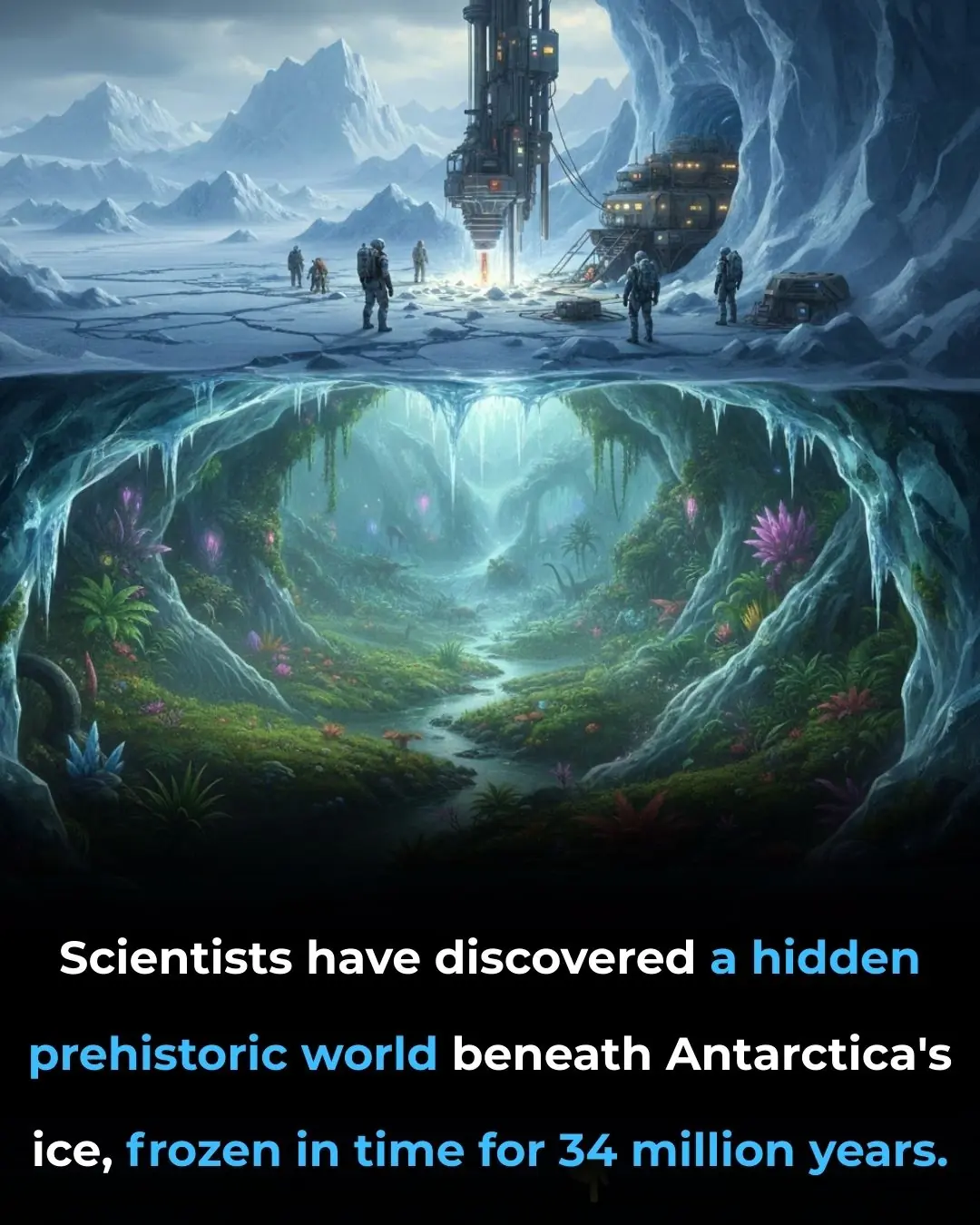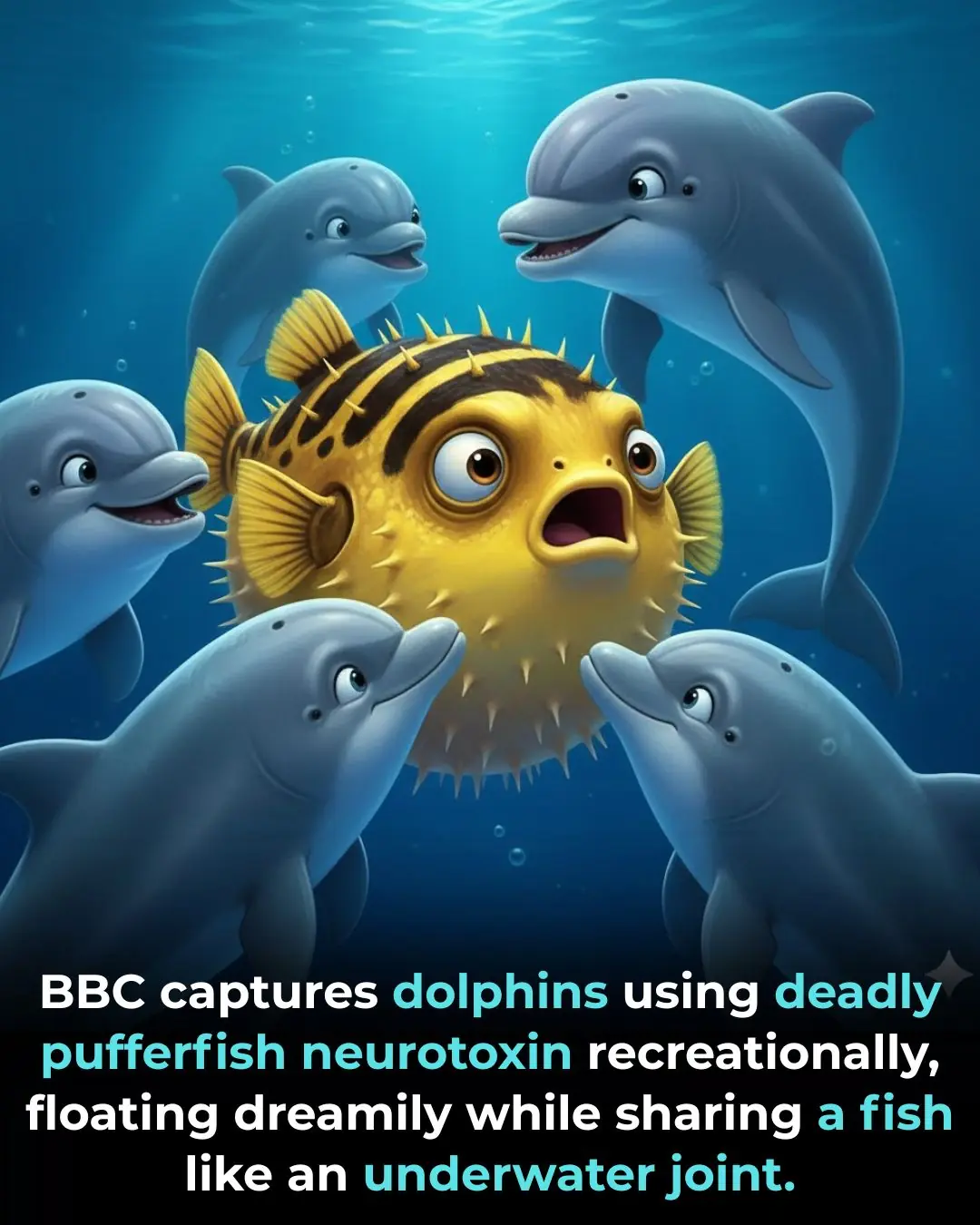
The 400-Year-Old Greenland Shark: A Living Witness to Centuries
She has glided through the dark, icy depths of the ocean since an age when wooden ships and candlelight were the height of human civilization — a living witness to centuries of human history.
A female Greenland shark was recently estimated to be nearly 400 years old — making her the longest‑living vertebrate ever recorded. In the landmark study published in Science, researchers employed radiocarbon dating of the proteins within the shark’s eye‑lens nucleus to estimate the ages of 28 Greenland sharks. Among them, one particularly large female was determined to have lived to approximately 392 years old, likely born in the early 1600s.
That means this shark was already roaming the North Atlantic long before electricity, cars, national boundaries, or the modern world existed.
Greenland sharks grow extremely slowly — roughly one centimeter per year — and often reach lengths well over five meters (more than 16 feet). Their sluggish growth and the frigid, deep-water habitats they occupy are believed to contribute to their extraordinary longevity. Because they dwell in deep, cold seas and seldom come near the surface, they remain elusive, which makes studying them particularly challenging.
The discovery of such ancient sharks has ignited widespread interest in their biology — particularly for what their lifespan might teach us about aging, longevity, and adaptation to extreme environments. Some scientists have speculated that their slow metabolism — a consequence of cold Arctic waters — helps minimize damage to their tissues over centuries of life.
In addition, more recent genetic studies provide additional clues into why Greenland sharks may live so long. Researchers have found that their genome contains multiple copies of genes involved in DNA repair and inflammation regulation — mechanisms that may help the sharks avoid cellular damage over prolonged lifespans.
But this longevity also raises concerns for conservation. Because these sharks take more than a century to reach sexual maturity (estimated at around 150 – 160 years), and because they reproduce very slowly, their populations are especially vulnerable to overfishing and environmental disturbance. If even a few of these centuries‑old individuals are lost — for example, as bycatch in fishing nets — it could have serious long-term consequences for their species.
In sum, the Greenland shark is not just a relic of a bygone era — she may be the Earth’s longest‑lived vertebrate, offering a rare window into biology stretched across centuries. As scientists continue to unravel her mysteries, this slow‑moving giant may teach us invaluable lessons about survival, resilience, and the deep rhythms of life under the sea.
News in the same category


Revolutionary Cancer Treatment: Activating Immune Structures Within Tumors to Shrink Cancer and Prevent Relapse

Linking Digestive Health, Vitamin D, and Neurodegenerative Diseases: A Pathway to Cognitive Health

The Hidden Dangers of Long-Term Energy Drink Consumption

Frozen Time Capsule: Scientists Reveal Ancient Antarctic Landscape

How Cold-Water Swimming Boosts Mood, Reduces Stress, and Enhances Mental Wellbeing

Snakebite Panic Leads Farmer to Sever Finger, Doctors Confirm No Danger

Why Even Small Amounts of Light at Night Can Harm Your Sleep and Mental Health

Apple Extract: A Natural Alternative to Chemotherapy for Treating Colon Cancer

Revealing the Human Heart: A Stunning Look at Its Circulatory System Without Muscle or Fat

Why the Brain Remembers Negative Experiences More Than Positive Ones: Implications for Mental Health and Well-Being

Having the letter M on the Palm of your hand means that

5 Unique Things You Only Experience When Loving an Older Woman

Doggy School on Wheels: How Canada Reinvented Pet Daycare

The Giant Golden-Crowned Flying Fox: A Viral Encounter With a Critically Endangered Giant

Dolphins and Pufferfish: The Stunning Discovery Behind Their Trance-Like Behaviour

Revolutionary MRI Technology Offers Non-Invasive Tumour Treatment in Sydney

Recreating a Legacy: Ruben Flowers Joins His Father as Co-Pilot on Captain Flowers’ Final Southwest Airlines Flight

Wood vs. Diamonds: The Cosmic Rarity of Life's Fingerprint
News Post

Belgian Prodigy Laurent Simons Earns PhD in Quantum Physics at Just 15 Years Old

Revolutionary Cancer Treatment: Activating Immune Structures Within Tumors to Shrink Cancer and Prevent Relapse

Flaxseeds Gel For Faster Hair Growth

Linking Digestive Health, Vitamin D, and Neurodegenerative Diseases: A Pathway to Cognitive Health

The Hidden Dangers of Long-Term Energy Drink Consumption

Frozen Time Capsule: Scientists Reveal Ancient Antarctic Landscape

How Cold-Water Swimming Boosts Mood, Reduces Stress, and Enhances Mental Wellbeing

Snakebite Panic Leads Farmer to Sever Finger, Doctors Confirm No Danger

Why Even Small Amounts of Light at Night Can Harm Your Sleep and Mental Health

Apple Extract: A Natural Alternative to Chemotherapy for Treating Colon Cancer

Revealing the Human Heart: A Stunning Look at Its Circulatory System Without Muscle or Fat

Why the Brain Remembers Negative Experiences More Than Positive Ones: Implications for Mental Health and Well-Being

You're doing it all wrong. Here’s the right way to clean humidifiers

Nurse Promises Not to Laugh at This Man’s Problem

What Your “Odd Animal Out” Choice Says About You

As he nears 100, Dick Van Dyke, 99, makes a touching confession about his life

Two Golden Elixirs for Energy, Glow & Balance

The Power of Hawthorn (Genus Crataegus): A Natural Ally for Heart and Cholesterol Health
